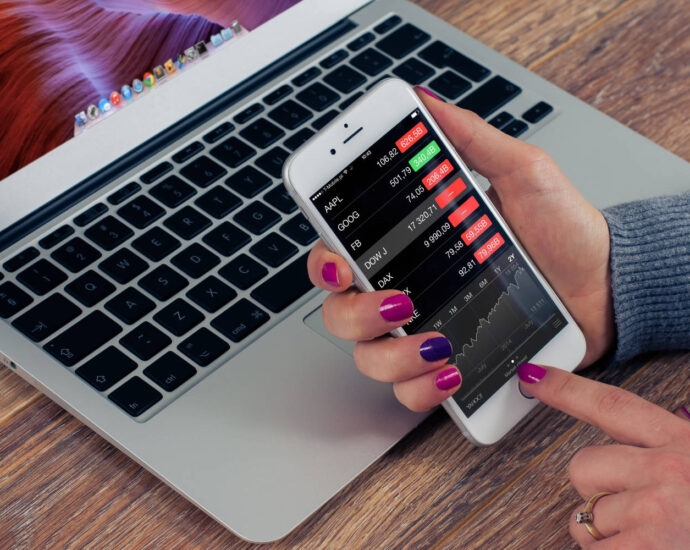As we rely on our phones to manage more of our daily lives, it’s no surprise that fintech apps have grown in popularity. The ability to instantly see an account balance or receive information that someone (hopefully you) purchased a new TV on your credit card can seem essential to your everyday functioning. But before you tie your financial accounts to one app, here are some things to consider.
What is fintech?
Fintech involves managing or tracking your money using a computer or app. Pretty much anything you could do with your bank account or brokerage (bill pay, stock purchases, or depositing checks), your credit card (making payments at a store, tracking your spending), or even through third-party software (creating a budget, compiling portfolio performance in one place) all fall into the fintech universe. What started as a simple tool for checking your balance or paying bills now allows you to compile all of your accounts so you have the latest information at your fingertips.
How these apps work
To show balances or transactions from your separate accounts, fintech apps need your login information and passwords for each account. Some apps store this information internally; others will use intermediaries so that your login credentials aren’t stored on their servers.
At regular intervals these apps scrape your accounts, gathering any and all data they want, including your name, address, account numbers, balances, credit scores, lists of investments, recent purchases, etc. The advantage to you is you can see everything in one app. Not surprisingly, they may choose to sell this information at any time to anyone. In fact, this is how many free apps support themselves.
Security
Most reputable fintech companies realize the qualms people have about linking together their complete financial life under one umbrella. They might use two-factor authentication for logins or scramble personal data so anyone hacking the system wouldn’t be able to read it.
Still, having everything in one place could prove tempting to criminals. When asked why he robbed banks, Willie Sutton was reported to have said “because that’s where the money is.” Similarly, these apps have a door into the financial lives and habits of millions of people.
Even if you feel the app provides the security above and beyond what you’d expect, the question may become how many people do I want knowing about my purchases? The more companies that can see into your life – purchases, investments, how much you make, even down to your coffee habits – the more data conglomerates can build an accurate picture of you.
Research fintech apps
Before you open an account with any fintech company, do your due diligence to make sure their policies align with yours. Find out exactly how much and what data it collects, and how it is stored. Look into their sharing policies – do they sell your data? Do they give you the ability to opt out? How do they protect your data, and what happens if there’s a breach? Don’t just trust their answers – search online under the app name and “review” or visit complaint sites to learn what customers have said.
Also check with your financial institutions to see if they have policies in place regarding third-party apps and if there are any express limitations for sharing your login with these apps.
Download only through approved sites
While this should go without saying, make sure you download the app from Google Play, the App Store, or another secure site. This is not an app you want to pick up from a random .apk site. And as with all financial apps, keep it updated.
Only sign up for what you need
If you decide to use one of these apps, first look closely at your needs. Having an app track your spending provides ease-of-use, but is it worth the loss of privacy to not just keep a journal on your phone where you can list “coffee: $3.95”? Think through what you gain (and potentially what you might lose) with this convenience.
Use every security feature
Make your password longer and more complex than the eight characters with one number, letter, and capital letter that are the minimums for many accounts. Use two-factor authentication and consider fingerprint recognition if it’s available.
Log out when done
Each time you’ve finished using the app, make sure to log out. Do a test when you first download the app to see if it automatically times out or logs you out when you’re on a call or put down your phone. You don’t want someone picking up your phone at work and having access to your financial information.
Keep an eye on your real accounts
Periodically check your bank and/or brokerage accounts by logging directly into them. If someone steals your login credentials through the app, one of the first moves they will make is to lock you out of your accounts (and then steal your cash or investments).
Block unwanted fintech apps
If you signed up for an app and discover it’s not something you wanted, start by erasing any data the app has stored on you and delete the app. That might not be enough though – some apps may continue to access your data. Go into all financial accounts you accessed through the app and change your login credentials directly on the bank’s or broker’s web page; that way the app won’t be able to log in.
Fintech apps are changing the way people manage their money. The convenience may seem like it’s something you can’t live without. If you decide to go forward, test drive by signing up for only what you absolutely need. Once you’ve determined its worth, you can always tie in other accounts or download another app.
Photo by Firmbee
